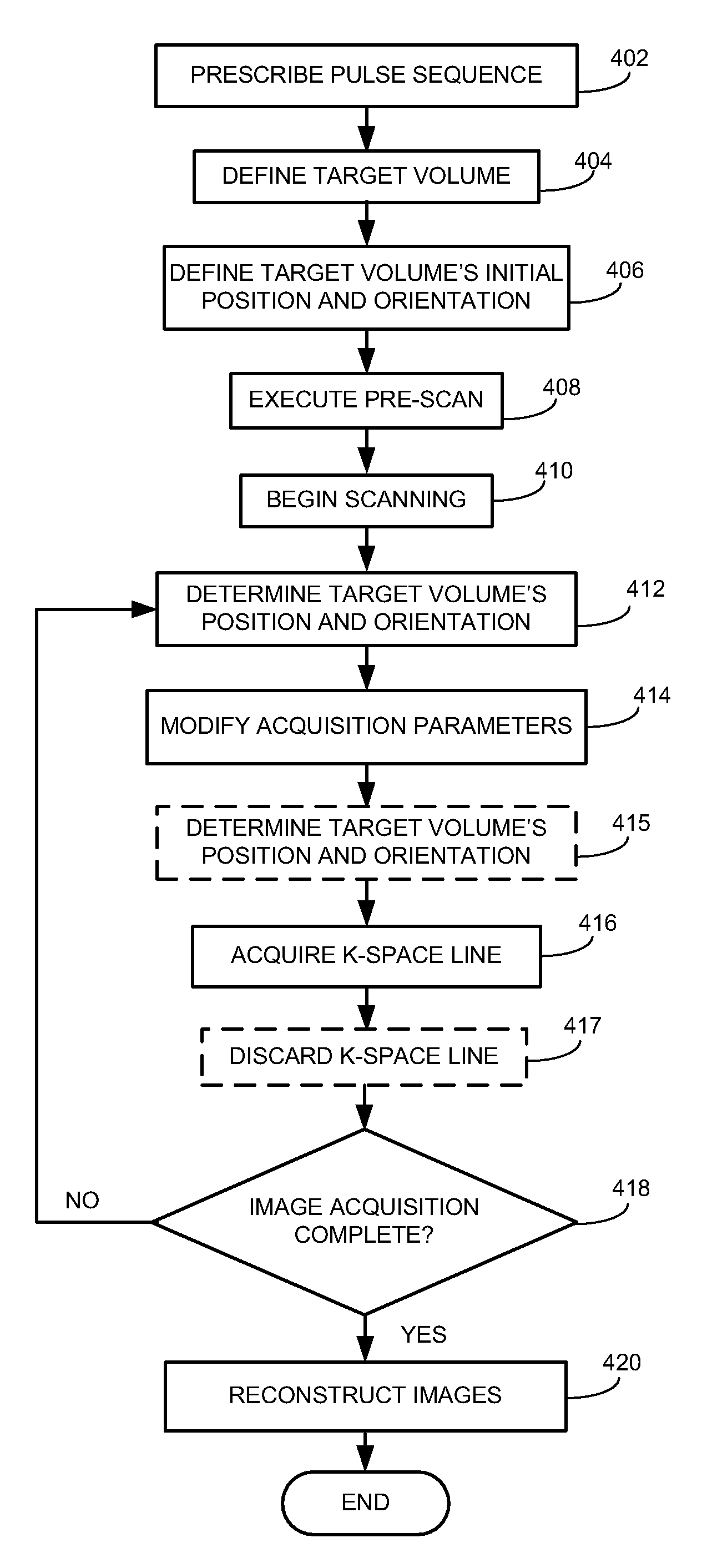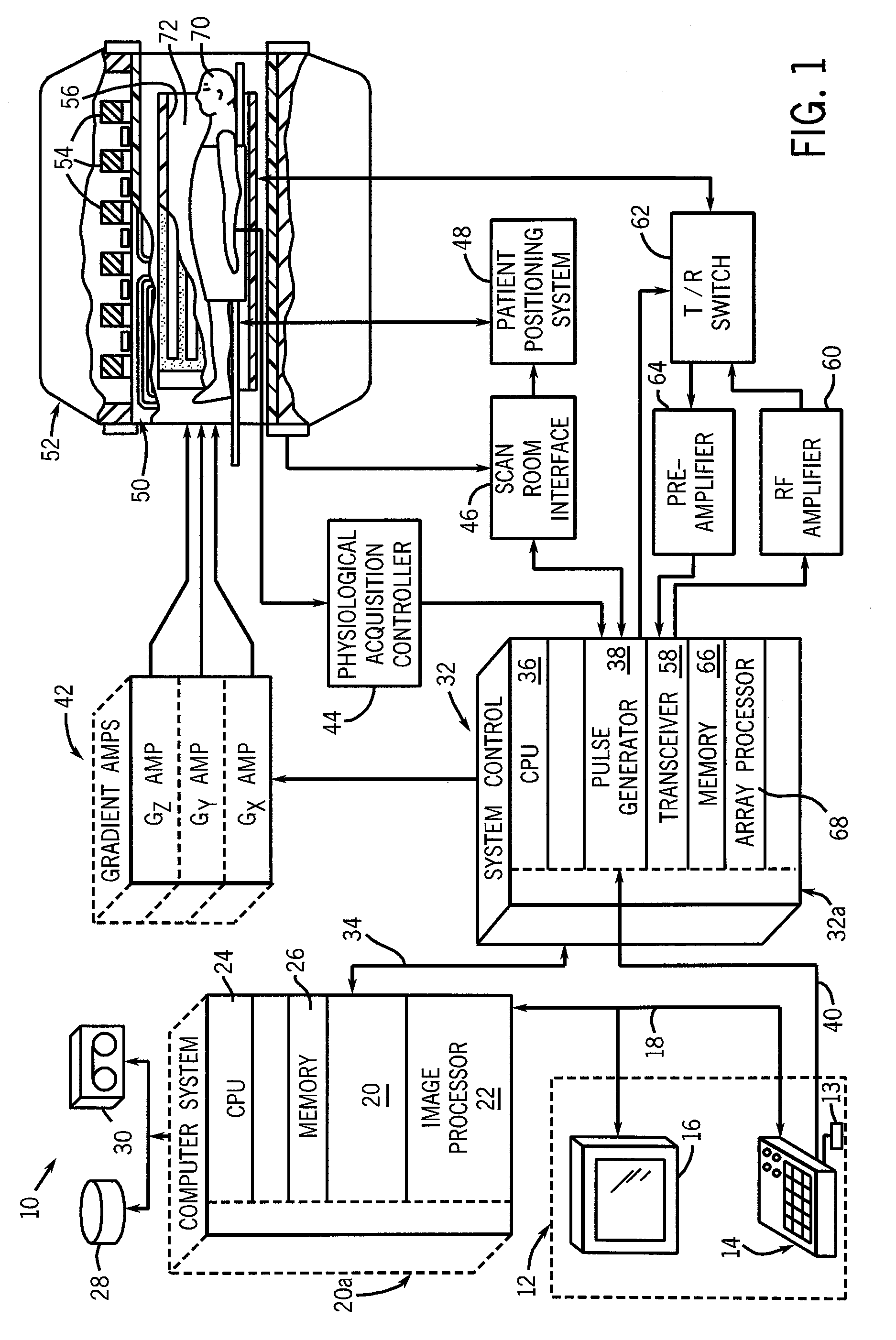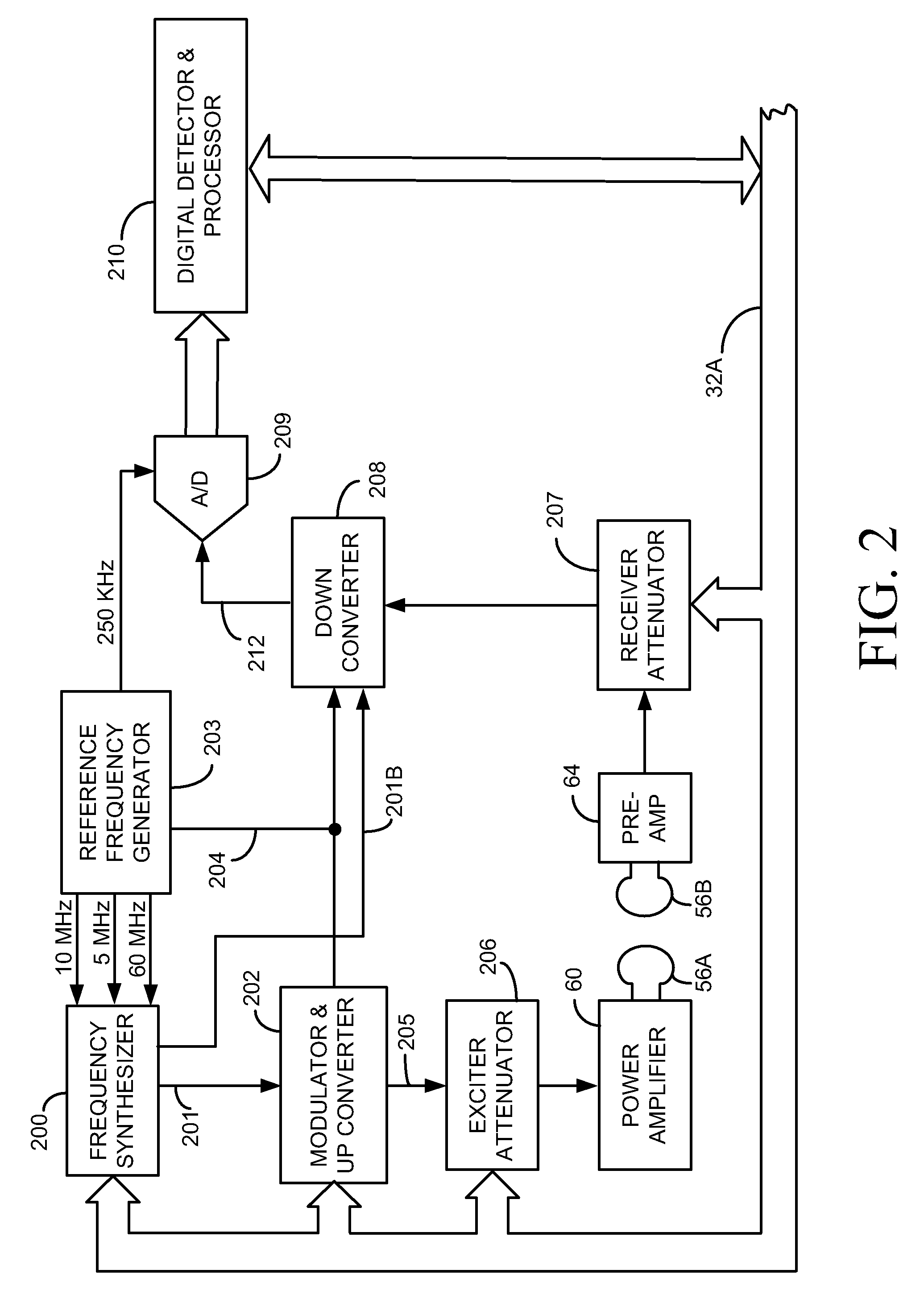Method and apparatus for acquiring magnetic resonance imaging data
a magnetic resonance imaging and data acquisition technology, applied in the field of magnetic resonance imaging systems, can solve the problems of image artifacts, degrade overall image quality, and require longer than a minute to acquire sufficient data for an entire imag
- Summary
- Abstract
- Description
- Claims
- Application Information
AI Technical Summary
Benefits of technology
Problems solved by technology
Method used
Image
Examples
Embodiment Construction
[0015]In the following detailed description, numerous specific details are set forth in order to provide a thorough understanding of embodiments. However it will be understood by those of ordinary skill in the art that the embodiments may be practiced without these specific details. In other instances, well-known methods, procedures, components and circuits have not been described in detail so as not to obscure the embodiments.
[0016]MRI data is typically collected in a Fourier space known in imaging as “k-space,” a reciprocal space connected to real space via a Fourier transform. Each line of MRI data in k-space corresponds to a MR signal that has been encoded with a particular spatial frequency and acquired and digitized. In accordance with embodiments, an offset vector and rotation matrix may be determined for each k-space line individually during the acquisition of MRI data. The ability to define different offset vectors and rotation matrices for each k-space line allows tracking...
PUM
 Login to View More
Login to View More Abstract
Description
Claims
Application Information
 Login to View More
Login to View More - R&D
- Intellectual Property
- Life Sciences
- Materials
- Tech Scout
- Unparalleled Data Quality
- Higher Quality Content
- 60% Fewer Hallucinations
Browse by: Latest US Patents, China's latest patents, Technical Efficacy Thesaurus, Application Domain, Technology Topic, Popular Technical Reports.
© 2025 PatSnap. All rights reserved.Legal|Privacy policy|Modern Slavery Act Transparency Statement|Sitemap|About US| Contact US: help@patsnap.com



